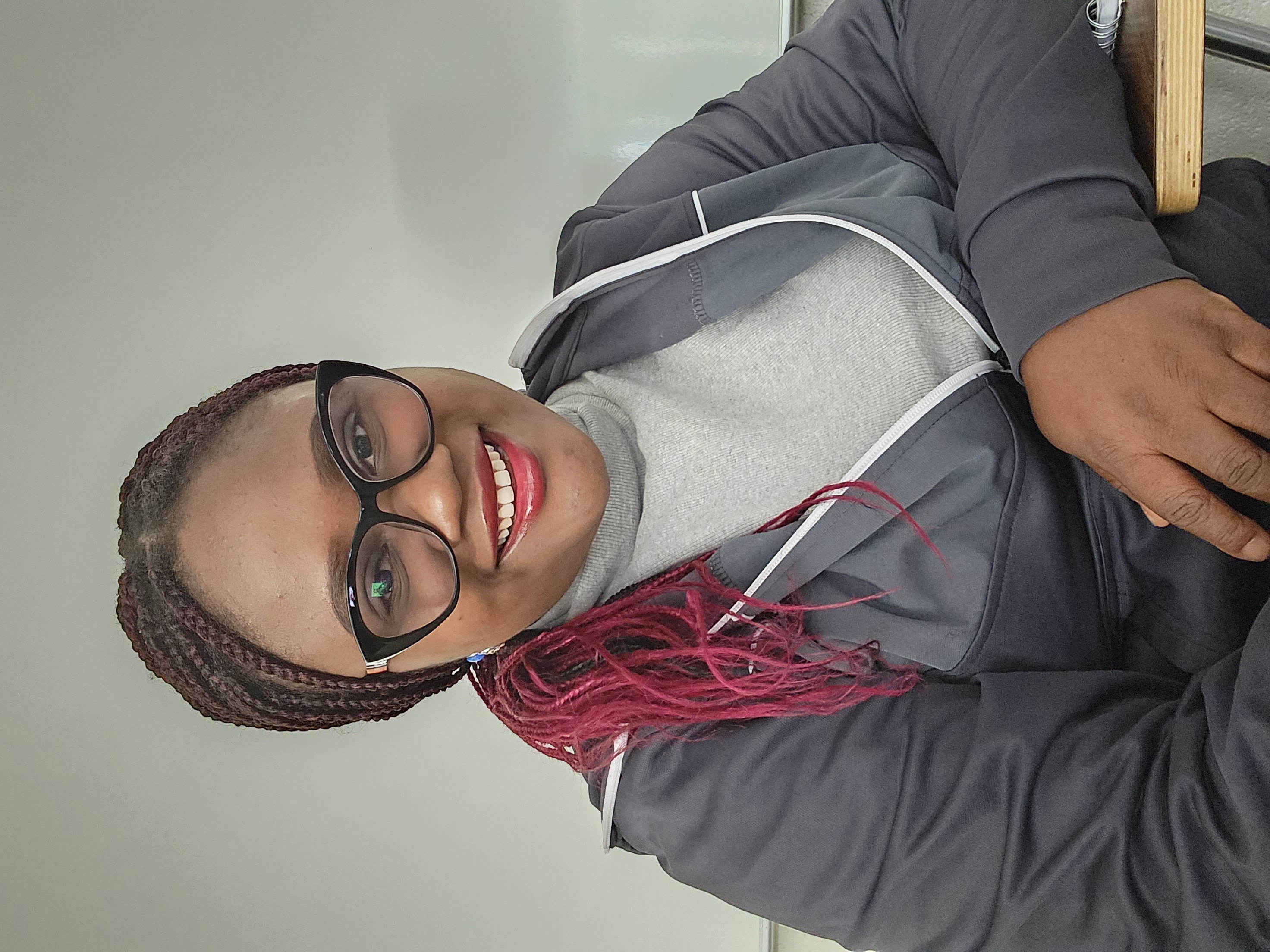CUP Graduate Student Equity Award Profile: Jah-Amaka Enwedo
8 May 2023

“Community-based research needs commitment. In everything I do, I plan to continue my research within the deaf community. My ultimate goal is to improve the standards and quality of deaf education, not just in Canada but internationally.”
This article is part of a series highlighting the recipients of the Graduate Student Equity Award offered by the Community-University Partnership (CUP) in the School of Public Health. The award supports graduate students pursuing community-engaged research and is made possible with funding from the Suncor Energy Foundation.
Jah-Amaka and fellow award recipient Jessie Conrad were also profiled by Folio in the fall of 2022 about pushing the boundaries of community-engaged research.
Once, while Jah-Amaka was living with her family in a small town in eastern Nigeria, she got to know a young girl who was deaf. Because of her disability, the girl suffered abuse at home while her siblings attended school. Moreover, appropriate educational options were beyond the family’s financial means. Jah-Amaka says it was a desire to help this girl, and children in similar situations across Nigeria and the world, that inspired her interest in deaf education. Although her undergraduate degree was in biochemistry, Jah-Amaka committed herself to entering the deaf education field.
The first step in the journey was completing a certification program in sign language, which enabled her to volunteer tutoring deaf individuals. In Nigeria, most students who complete a bachelor’s degree must also complete a one-year mandatory service placement, for which they are usually posted to a different part of the country. During her placement, Jah-Amaka was involved in hosting and co-hosting television programs that raised awareness about deafness. A major focus of the program was shifting the public’s perception away from a “deficit mentality” that sees deaf people only as their disability.
“It was a kind of advocacy,” Jah-Amaka says. “Scholars in Nigeria and around the world are trying to change the people's mindset around deafness and other disabilities. Many people are still living in an era where they hide their disabilities, or parents can deny having a child with a disability because of the stigma attached to it. Changing the mindset means that people do not see the disability, but rather the many other abilities a child has. It can also mean changing the environment to accommodate a deaf child or person and not the other way around.”
Jah-Amaka says learning sign language was no easy feat. Nigeria is a multilingual country, and people are likely to speak two or three languages. Her training included learning American Sign Language (ASL). However, this was insufficient because many in the Nigerian deaf community use Nigerian Sign Language, a not-yet-officially-recognized language that is based on ASL but reflects a local and indigenous context. Over time, Jah-Amaka adapted to communicating with members of the deaf community in their preferred language. She also earned a master’s degree with a specialization in deaf education.
Today, Jah-Amaka is a second-year PhD student in educational psychology through the Faculty of Education, where her research focuses on the grassroots development of educational policy for the deaf community. Her work aims to move away from the “deficit model,” the “charity model,” or the “medical model” that have historically defined the way society views people who are deaf.
“There’s a saying in the community: ‘Nothing about the deaf without the deaf.’ So it’s not just about establishing policies that we think will work because they’ve been tried elsewhere. It’s about getting the community involved, bearing in mind their own cultural and linguistic background. The question is: how do we get the deaf community to spearhead the development of policies about their education and future? It is necessary to create an equitable platform and education system for deaf learners that corresponds with the system for people who are not deaf.”
Jah-Amaka is currently doing a research assistantship (RA) with her supervisor Dr. Joanne Weber, who is the first-ever Canada Research Chair in deaf education. The project involves working with the Connect Society, a pre-K school for deaf children in Edmonton, to explore the use of art-based pedagogy, which incorporates story-drama, storytelling, drawing, and other creative activities to improve learning. It is based on a similar project Dr. Weber completed in Regina that reported many successes.
“It has been a wonderful experience for me to partake in this project, given that it’s my first time participating in such an intervention.”
As a Graduate Equity Award recipient, Jah-Amaka is grateful for the financial support. She has also been participating in CUP’s community of practice sessions, which have connected her to a network of peers equally invested in trying to do excellent community-engaged research.
“One thing I appreciate is that each of us is looking for a way to bridge the gap between research and practice. In lots of these discussions, we’ll talk about practical things we’re doing in the community or ideas we’ve encountered in our readings. Another thing I appreciate is that our cohort is so diverse. We come from different cultures and experiences.”
Jah-Amaka says the community of practice has also made her feel less lonely, which can happen when you are often studying and working in isolation. The members have taken to supporting each other outside the sessions, too. For example, they run a group chat, which allows them to stay connected and share ideas, resources, and articles.
At this point in her career, Jah-Amaka says she is strongly interested in remaining in academia and being a committed community-engaged researcher.
“Community-based research needs commitment. In everything I do, I plan to continue my research within the deaf community. My ultimate goal is to improve the standards and quality of deaf education, not just in Canada but internationally.”